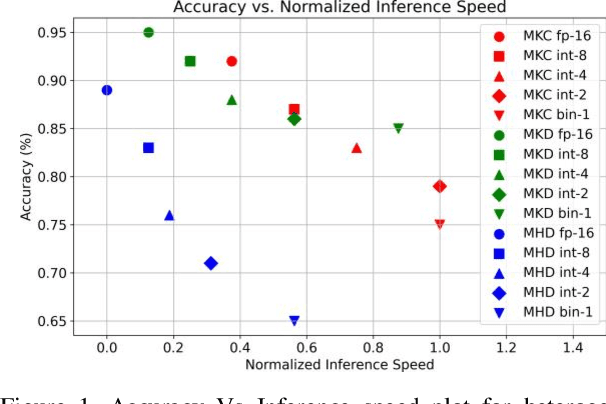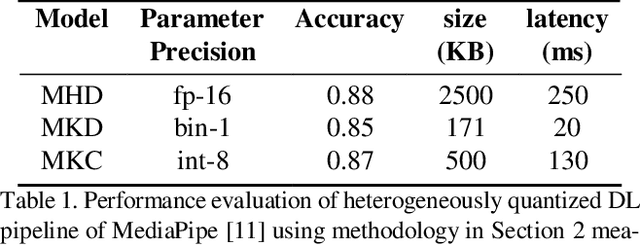Jayeeta Mondal
Automated Heterogeneous Low-Bit Quantization of Multi-Model Deep Learning Inference Pipeline
Nov 10, 2023

Abstract:Multiple Deep Neural Networks (DNNs) integrated into single Deep Learning (DL) inference pipelines e.g. Multi-Task Learning (MTL) or Ensemble Learning (EL), etc., albeit very accurate, pose challenges for edge deployment. In these systems, models vary in their quantization tolerance and resource demands, requiring meticulous tuning for accuracy-latency balance. This paper introduces an automated heterogeneous quantization approach for DL inference pipelines with multiple DNNs.
Computational Solar Energy -- Ensemble Learning Methods for Prediction of Solar Power Generation based on Meteorological Parameters in Eastern India
Jan 21, 2023Abstract:The challenges in applications of solar energy lies in its intermittency and dependency on meteorological parameters such as; solar radiation, ambient temperature, rainfall, wind-speed etc., and many other physical parameters like dust accumulation etc. Hence, it is important to estimate the amount of solar photovoltaic (PV) power generation for a specific geographical location. Machine learning (ML) models have gained importance and are widely used for prediction of solar power plant performance. In this paper, the impact of weather parameters on solar PV power generation is estimated by several Ensemble ML (EML) models like Bagging, Boosting, Stacking, and Voting for the first time. The performance of chosen ML algorithms is validated by field dataset of a 10kWp solar PV power plant in Eastern India region. Furthermore, a complete test-bed framework has been designed for data mining as well as to select appropriate learning models. It also supports feature selection and reduction for dataset to reduce space and time complexity of the learning models. The results demonstrate greater prediction accuracy of around 96% for Stacking and Voting EML models. The proposed work is a generalized one and can be very useful for predicting the performance of large-scale solar PV power plants also.
VacciNet: Towards a Smart Framework for Learning the Distribution Chain Optimization of Vaccines for a Pandemic
Aug 01, 2022



Abstract:Vaccinations against viruses have always been the need of the hour since long past. However, it is hard to efficiently distribute the vaccines (on time) to all the corners of a country, especially during a pandemic. Considering the vastness of the population, diversified communities, and demands of a smart society, it is an important task to optimize the vaccine distribution strategy in any country/state effectively. Although there is a profusion of data (Big Data) from various vaccine administration sites that can be mined to gain valuable insights about mass vaccination drives, very few attempts has been made towards revolutionizing the traditional mass vaccination campaigns to mitigate the socio-economic crises of pandemic afflicted countries. In this paper, we bridge this gap in studies and experimentation. We collect daily vaccination data which is publicly available and carefully analyze it to generate meaning-full insights and predictions. We put forward a novel framework leveraging Supervised Learning and Reinforcement Learning (RL) which we call VacciNet, that is capable of learning to predict the demand of vaccination in a state of a country as well as suggest optimal vaccine allocation in the state for minimum cost of procurement and supply. At the present, our framework is trained and tested with vaccination data of the USA.
 Add to Chrome
Add to Chrome Add to Firefox
Add to Firefox Add to Edge
Add to Edge